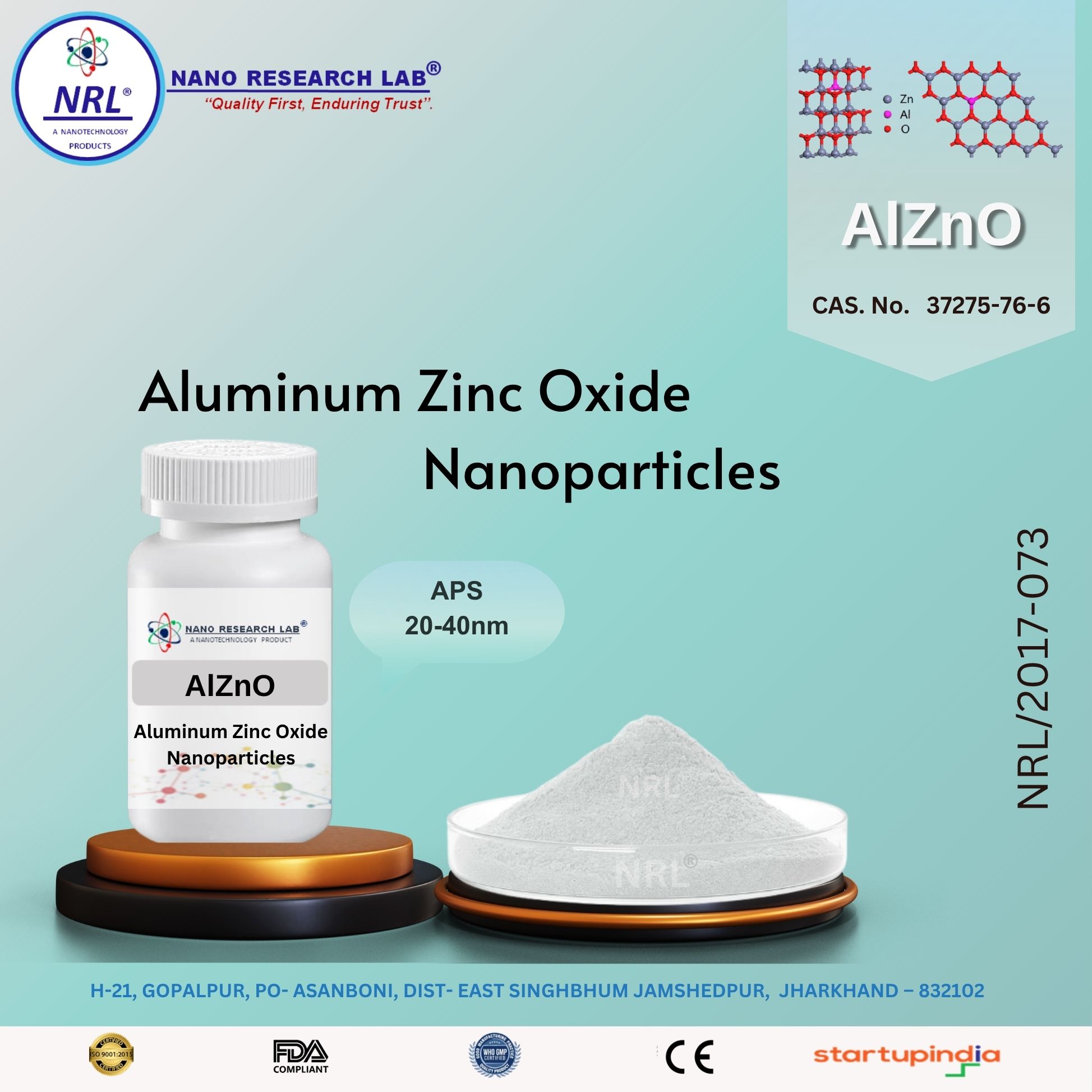
Aluminum Zinc Oxide Nanoparticles/Nanopowder (AZO, AlZnO, 2.5% Al, 20-40nm, purity 99.5%)
₹1475.00
Aluminum Zinc Oxide (AZO, AlZnO) Nanoparticles / Nanopowder (2.5% Al, 20–40 nm, Purity 99.5%)
⚙️ Technical Specifications
Property | Specification |
|---|---|
Product Name | Aluminum Zinc Oxide Nanoparticles / Nanopowder |
Chemical Composition | AlZnO (2.5% Al-doped ZnO) |
Purity | ≥ 99.5% |
Particle Size | 20–40 nm |
Appearance | White to light gray fine powder |
Crystal Structure | Hexagonal wurtzite (ZnO phase with Al substitution) |
Density | ~5.6 g/cm³ |
Band Gap | ~3.3 eV (tunable via Al doping) |
Electrical Resistivity | 10⁻³–10⁻⁴ Ω·cm (depending on sintering and film conditions) |
Solubility | Insoluble in water, soluble in acids |
CAS Number | 1314-13-2 (ZnO base) / 1344-28-1 (Al₂O₃ component) |
🌟 Key Features
High purity (≥99.5%) and uniform nanoscale particle size (20–40 nm)
Aluminum-doped zinc oxide (AZO) provides enhanced conductivity and optical transparency
Excellent n-type semiconductor properties
High thermal stability, UV transparency, and chemical durability
Eco-friendly alternative to Indium Tin Oxide (ITO) for transparent conductive coatings
Suitable for thin-film deposition, coatings, and electronic materials
🔬 Applications (in Detail)
1. Transparent Conductive Coatings (TCO)
AZO nanoparticles are widely used in transparent conductive films as an alternative to ITO.
Suitable for touchscreens, flat-panel displays, OLEDs, and solar cells.
Provides high optical transmittance (>85%) and low sheet resistance.
2. Photovoltaic & Solar Applications
Used as a transparent electrode layer in thin-film solar cells (CIGS, CdTe, perovskite).
Enhances light absorption, conductivity, and device stability.
Acts as a buffer or window layer to improve cell efficiency.
3. Gas Sensors
Highly sensitive to gases such as ethanol, CO, NO₂, and NH₃.
Used in semiconducting gas sensors due to large surface area and doping-induced conductivity changes.
4. Optoelectronic Devices
Applied in UV photodetectors, LEDs, and electroluminescent displays.
Combines wide band gap and high carrier concentration for efficient electronic response.
5. Antibacterial & UV-Protection Coatings
Provides antibacterial, antifungal, and UV-shielding properties when coated on textiles, plastics, or paints.
Used in cosmetics, packaging films, and protective coatings.
6. Ceramics & Composites
Added to ceramic and polymer composites to improve electrical conductivity, transparency, and mechanical strength.
Suitable for functional coatings and electro-ceramic components.
7. Research & Development
Used in nanotechnology, thin-film deposition, and advanced semiconductor research.
Excellent for sol–gel, spin-coating, and sputtering processes in material synthesis.
⚠️ Handling & Storage
Store in a tightly sealed container in a dry, cool, and inert atmosphere.
Avoid moisture and strong acids or bases.
Use gloves, mask, and eye protection during handling to prevent inhalation of fine powders.
